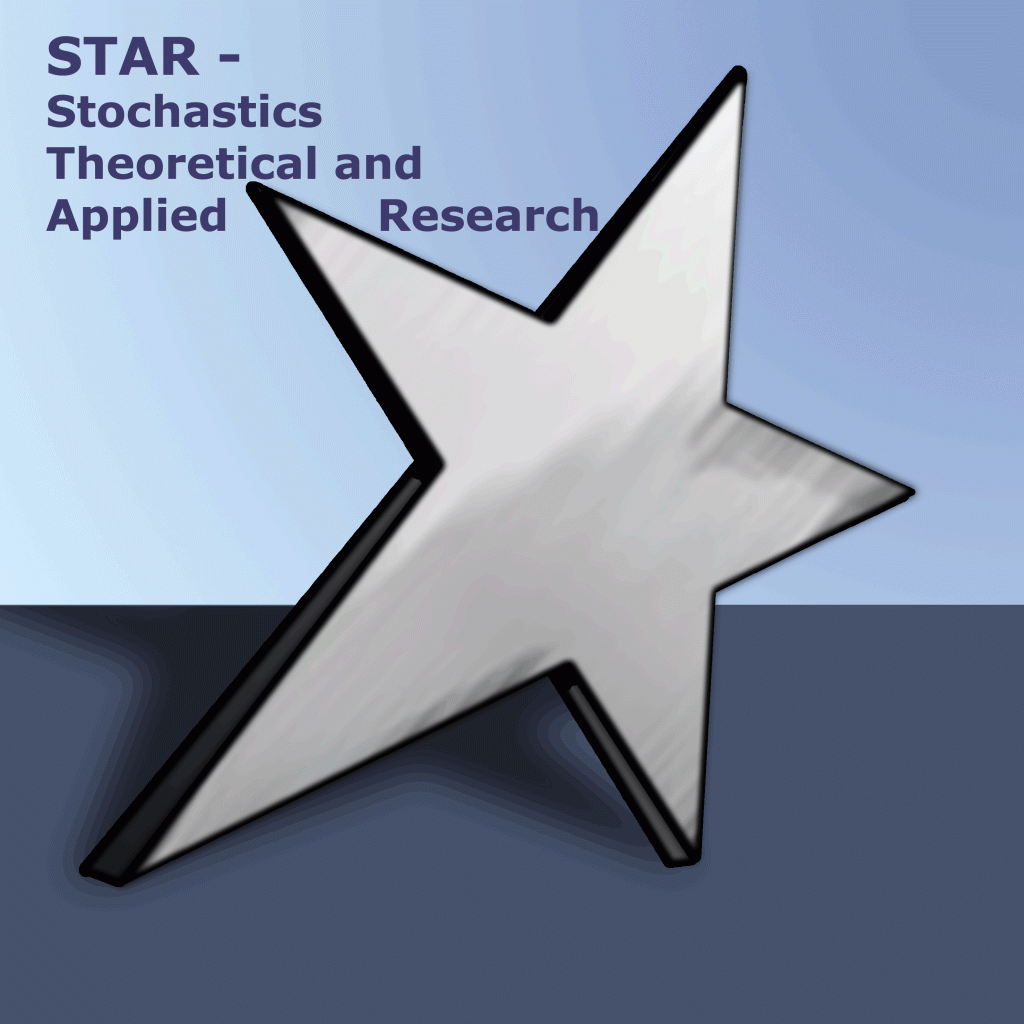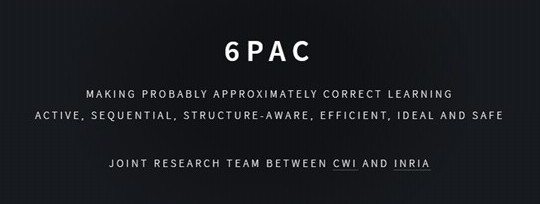
- This event has passed.
Workshop: “Safe, Anytime-Valid Inference (SAVI) and Game-theoretic Statistics”
May 30, 2022 - Jun 3, 2022
Summary
A large fraction of published research in top journals in applied sciences such as medicine and psychology has been claimed as irreproducable. In light of this ‘replicability crisis’, traditional methods for hypothesis testing, most notably those based on p-values, have come under intense scrutiny. One central problem is the following: if our test result is promising but nonconclusive (say, p = 0.07) we cannot simply decide to gather a few more data points. While this practice is ubiquitous in science, it invalidates p-values and error guarantees and makes the results of standard meta-analyses very hard to interpret. This issue is not unique for p-values: other approaches, such as replacing testing by estimation with confidence intervals, suffer from similar optional stopping/continuation problems. Over the last few years several distinct but closely related solutions have been proposed, such as confidence sequences, anytime-valid p-values, and e-processes/e-values. These form the basis of safe, anytime-valid inference.
Remarkably, all these approaches can be understood in terms of (sequential) gambling. One formulates a gambling strategy under which one would not expect to gain any money if the null hypothesis were true. If for the given data one would have won a large amount of money in this game, this provides evidence against the null hypothesis. The test statistic in traditional statistics gets replaced by the gambling strategy; the p-value gets replaced by the (virtual) amount of money gained. In more mathematical terms, evidence against the null and confidence sets are derived in terms of nonnegative supermartingales, or more generally, e-processes. While this idea in essence goes back to Wald’s sequential testing of the 1940s and its extensions by Robbins, Darling, Siegmund and Lai in the 1960s and 1970s, it never really caught on because it used to be applicable only to very simple statistical models and testing scenarios. Another line of ideas, beginning with Ville (1939), has been resurrected by Shafer and Vovk in the name of game-theoretic probability. The applications and generalizations of all these ideas form an active area that we call game-theoretic statistics.
Recent work shows that these ideas are essentially universally applicable –– one can design nonnegative martingales, supermartingales or e-processes for large classes of tests and for many estimation problems, both parametric and nonparametric, also thereby yielding sequential tests, anytime-valid p-values using nonasymptotic versions of the law of the iterated logarithm, and confidence sequences by inversion. All these techniques have both a gambling and a Bayes factor interpretation. Thus, these directions are able to somewhat unite Bayesian and frequentist ways of thinking; with the explicit ability to use prior knowledge, with frequentist error control and confidence bounds, but often using Bayesian techniques.
This workshop aims to get together two groups of researchers — those who have been developing the mathematical, probabilistic and statistical foundations of this area, and practitioners who have studied and written about the reproducibility crisis in the sciences.
There has been much progress on these martingale techniques in the last 5 years or so, and researchers within the first group often do not know or understand each other’s work very well; they also don’t know what the most pressing issues in ‘reproducibility practice’ are. And researchers within the second group often do not know about the new (or resurrection of old) approaches, and what they can achieve. The aim of this workshop is to bring these two groups together, hopefully resulting in new theory informed by what is really important in practice, and practical applications of what are highly promising theoretical developments. We will start with two tutorials that should be understandable for everyone with basic knowledge of classical statistics –– thus, all invitees. In the remainder of the workshop we will intersperse more general talks (given by researchers in the second group and a subset of researchers in the first) with more technical talks by researchers in the first group. While some of these may be quite technical, we will strive to ensure that a large fraction of every day’s talks are accessible to the full intended audience.
This conference supports the Welcoming Environment Statement of the Association for Women in Mathematics (AWM).
Sponsors







Organisers
| Peter Grünwald | CWI, Amsterdam | |
| Aaditya Ramdas | Carnegie Mellon University | |
Speakers
| Shubhada Agrawal | Tata Institute, Mumbai | Multi-armed Bandits & Empirical Likelihood Ratio Confidence Intervals |
| Odalric Ambrym-Maillard | INRIA Lille | |
| Akshay Balsubramani | Stanford University | Honest times, calibration, and peeking in inference |
| Rianne de Heide | VU Amsterdam | Optional stopping with Bayes factors |
| Leonhard Held | University of Zurich | A Statistical Framework for Replicability |
| Wouter Koolen | CWI, Amsterdam | Log-optimal Anytime-Valid E-values |
| Martin Larsson | CMU | Admissible anytime-valid sequential inference must rely on nonnegative martingales |
| Daniel Lakens | TU Eindhoven | What are scientists’ needs when sequentially analyzing data? |
| Theis Lange | University of Copenhagen | The New Trial Sequential Analysis tool |
| Michael Lindon | Netflix | Applications of Always-Valid Inference at Netflix |
| Alexander Ly | University of Amsterdam and CWI | |
| Luigi Pace | University of Udine | |
| Muriel Perez | CWI | Optimal E-statistics under group invariance |
| Don van Ravenzwaaij | Groningen University | What to replicate? |
| Christian Robert | Université Paris-Dauphine + Warwick University | Testing hypotheses via a mixture estimation |
| Johannes Ruf | London School of Economics | Testing exchangeability: fork-convexity, supermartingales and e-processes |
| Alessandra Salvan | University of Padova | Likelihood, Replicability and Robbins’ Confidence Sequences |
| Judith ter Schure | Amsterdam UMC | ALL-IN meta-analysis |
| Glenn Shafer | Rutgers University | How game-theoretic probability can reform theoretical statistics |
| David Siegmund | Stanford University | The Price of SAVI |
| Mark Simmonds | University of York | Robust updating of meta-analysis: Why Cochrane says no |
| Rosanne Turner | CWI / Utrecht University | Anytime-valid Confidence Intervals for Contingency Tables and Beyond |
| Vladimir Vovk | Royal Holloway London | True and false discoveries with e-values |
| Eric-Jan Wagenmakers | University of Amsterdam | Approximate Objective Bayes Factors from p-Values and Sample Size: The 3p√n Rule |
| Ruodu Wang | University of Waterloo | Merging e-values via martingales and e-backtesting |
| Ian Waudby-Smith | Carnegie Mellon University | Time-uniform central limit theory, asymptotic confidence sequences, and anytime-valid causal inference |
| Johanna Ziegel | University of Bern | Anytime-valid sequential testing for elicitable functionals via supermartingales |
Programme
Please find the programme through THIS LINK
Abstracts
Will follow
POSTERS
| Yo Joong Choe | Comparing Sequential Forecasters |
| Yunda Hao | E-variables for Two-Sample Problems with Exponential Families |
| Parnian Kassraie | Meta-Learning Hypothesis Spaces for Sequential-making |
| Mojmir Mutny | Likelihood Ratio Confidence Sets for Sequential Decision Making |
| Peter Saux | Time-uniform deviation in generic exponential families via Bregman martingales |
| Rosanne Turner | Anytime-valid Confidence Intervals for Contingency Tables and Beyond |
| Ian Waudby-Smith | Time-uniform central limit theory with applications to anytime-valid causal inference |
Registration
The registration is now closed. If you missed the deadline and want to follow just one or days, please contact us: p.koorn@tue.nl
